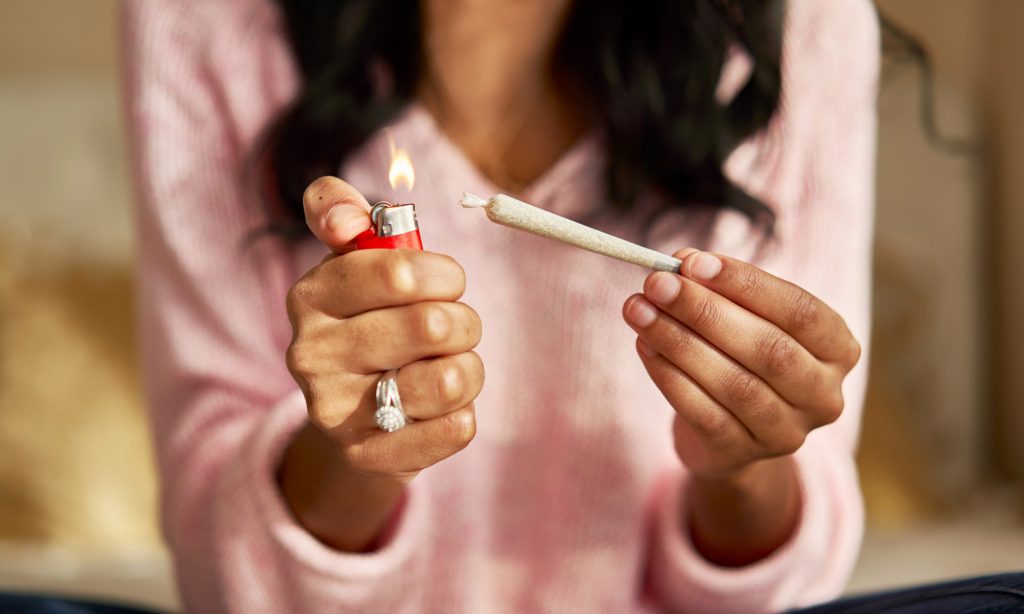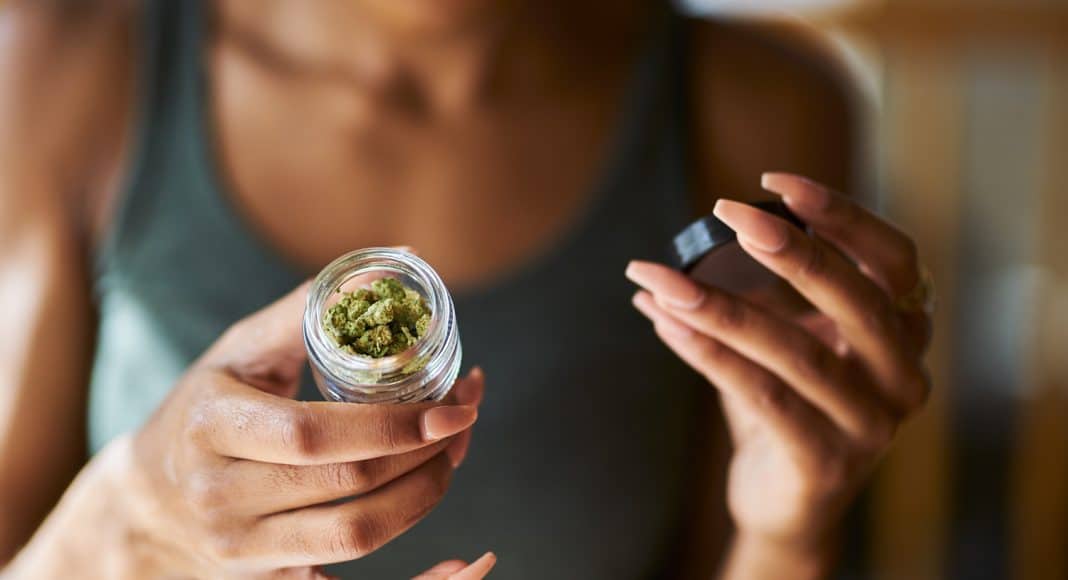Cannabis companies seem to be sensitive to the issue and it looks as if small steps are being taken to be inclusive as the industry continues to build and grow.
Diversity is the word of the day when it comes to the cannabis industry. It’s the word that sunk the attempt to legalize adult use cannabis in the state of New York and it’s also the issue that torpedoed New Jersey’s march to full legalization.
In the early days of the legal medical marijuana market, the demographics of industry insiders skewed to outliers, risk-takers and women who were tired of banging their heads on the glass ceilings of other industries. People of color with past incarcerations were largely shut out of the industry. The advocates pushing for legalization basically had to agree to a strict no criminals rule in order for the states to gain a level of comfort. The unintended consequence of that bargaining tool was that people of color got pushed aside in the early days of the cannabis industry.
As more data was released it was realized that black and brown people were arrested and jailed far more often than their white cannabis counterparts. Thus, legalization laws that required no executives with a criminal past meant that population was excluded from the party. Those statistics have been used as reason for arrest record expungements so that people with prior marijuana arrests can start over with a clean slate and enter the industry. States now realize that expungement needs to be a part of the social equity formula so that this demographic isn’t cut out of the legal community altogether.
Women in Cannabis
Women had a much better shot at grabbing a seat at the executive cannabis table than people of color, but it seems they are fighting to keep those gains. Women jumped into the cannabis industry in the early days as they accepted the risk of working in cannabis. According to Debra Borchardt, the CEO and Co-founder of the cannabis financial news website Green Market Report, “The general attitude from the early cannabis pioneers was ‘what have I got lose?’ We weren’t moving up in traditional sectors the way we felt we should be and weren’t getting equal pay. So why not take charge of our careers in cannabis? The opportunities were there for the taking because men, as breadwinners, weren’t willing to take that risk.”

The number of female employees in the cannabis industry has fluctuated between 26% and 36% according to statistics from Marijuana Business Daily. According to a report by cannabis employment firm Vangst and MJ Biz Daily, 38.5% of total surveyed employees identified as female. The report reviewed 166 cannabis companies in 17 states. Responses from companies with fewer than 2 employees weren’t included.
RELATED: New York State Only Pretends It Wants Diversity In Cannabis Companies
The top three states for hiring female workers in the cannabis industry were Kentucky, Pennsylvania, and New York. Only 17.6% of these women said they held a director or executive role. One company though had 15 women in either a director role or executive role. At least 41.2% have at least one female at the director or executive level position. Sadly, 12.6% of the surveyed cannabis companies had zero women in a director or executive level position.
Seven companies noted that they only have women working for them, but those companies were small, totaling seven or fewer employees. Compared to other industries only education and real estate hire more women. Education is 68% women, while real estate is 49.9% women.
“Women started out strong in the industry, then we saw those gains slip as many owners were bought out or left due to founder fatigue,” said Borchardt. “We’ve also seen the stigma of cannabis work lessen and that is drawing many more men to the industry. The key now is for women to fight to get on company boards and keep the pressure on companies to hire more women.”
It does seem that the issue is getting more attention. A recent Arcview event held in New York was notable in that Troy Dayton said, “We welcomed more female speakers on stage In New York than ever before, and we couldn’t have been more pleased with the results. We continued our commitment to honoring women’s indispensable contribution to our industry by hosting the Arcview Women’s Investor Network (A-WIN) retreat after our event.” Another panelist at the event said, “Frankly I’m tired of just seeing the same type of men pitch. I welcome the new faces and want to see more women pitching.”
Women Grow sponsored a study on women in cannabis in 2017 in a joint project with New Frontier Data that showed an overwhelming number of cannabis companies with women leaders. However, over a third of the people contributing to the report were from the Women Grow organization, so it was already heavily skewed towards women responding. This report found 50% of the cannabis companies were owned by women. These were mostly small businesses with revenue under $100,000 and not publicly traded entities.
RELATED: 20 Women Set To Dominate The International Cannabis Space In 2019
That could be interpreted as women are still starting businesses and becoming entrepreneurs, but not making the jump to the big time. This hurdle seems to have been identified as female investing groups are popping up like Treehouse Global Ventures. It’s run by women with the intention to invest in women. Amy Margolis also started a group in Oregon called The Initiative. It’s an accelerator program designed to help female cannabis businesses navigate the cozy world of raising capital.
Ultimately, as women are becoming a fast growing category for cannabis consumption, companies are taking notice. It makes sense to have more women employees if the companies customers are increasingly more women.

People of Color
The discussion surrounding women in the cannabis industry is aided by the surveys and studies asking employers about their gender hiring statistics. Unfortunately for minorities or people of color, the question becomes very awkward and so it isn’t asked. The Women Grow survey did ask about minority representation, something few in the cannabis industry have tried to determine. Within this specific study, over half of the employees in ownership or management roles were minority. Still, one has to consider the group that responded to the survey was skewed towards women and minorities.
According to the U.S. Census Bureau, 39.4% of the population identifies as nonwhite, but only account for 27.4% of all startup businesses. The highest percentage of minority owned startups are in California, followed by San Antonio Texas, the Washington metro area, St. Louis and then the New York metro area. Yet, no such figures exist within the cannabis community.
Roz McMarthy, the founder of Minorities for Medical Marijuana, said the issue was less awkwardness and more of an EEOC (Equal Employment Opportunity Commission) issue. “We need to get that data retrieved,” she said. However, she believes that fear of breaking EEOC rules keeps employers from asking about an employee’s race. “You have an industry that is being built in the shadows because some of that information is not being asked or being shared,” she added.
RELATED: Twista, Berner, And Chris Webby Discuss Racial Bias In Cannabis Arrests
Indeed, the Minority Cannabis Business Association determined that the city of Los Angeles fell short of expectations with regards to the cities social equity program, even though California rates the highest for minority owned startups. The group noted applicants were being exploited for their equity from shareholders. Educational services were minimal and incubators were inconsistent or abused their position. The group said that government officials appeared more interested in promoting their personal agendas than the future of the social equity program.
States are trying to address the social equity dilemma by requiring that a certain amount of licenses get awarded to applicants. For example, in Illinois the program says it “provides benefits directly to those who have suffered because of the war on cannabis. Not only does HB 1438 remove convictions through expungement, it specifically provides additional points for business applicants, access to financial resources for start-up costs, and resources to communities that were hardest hit from the war on cannabis.” Such a business must be owned by 51% or more of those who qualify, or for businesses with 10 or more staff, 51% of the workers must qualify. Yet so far, the only licenses awarded for adult-use sales in the state have been to Cresco Labs, which has a mostly while male c-suite.
A prime example of how things can go wrong as companies attempt to earn a minority license is the situation with Harvest Health & Recreation’s Ohio license application. Ms. Ariane Kirkpatrick, an African America, was listed on the company’s license application. She contributed no capital, but instead brought expertise and sweat equity. Harvest received one of the 12 grow licenses by claiming it was 51% owned by a member of an “economically disadvantaged group.” Kirkpatrick was listed as a President, but had no one listed as reporting to her. The CEO of Harvest, Steve White was listed as an owner , but with 0% interest. In Pennsylvania, the company was accused not using the minority or women-owned businesses as contractors as the company had promised. Harvest is in the process of rectifying these situations, but it demonstrates the way good intentions can go wrong.
While social engineering can be an almost impossible task to get right, McCarthy did have suggestions on ways to improve the cannabis industry’s efforts.
- Hire an actual diversity officer. She stressed that a social responsibility officer is not the same thing as these executives mostly focus renewable resources and sustainability. A diversity officer would actively work to create a welcoming environment for people of color.
- Market towards the African American community. McCarthy noted that this is a very loyal customer base, that is all but being ignored by cannabis marketers. There are products marketed towards women and stoner bro’s, so why not people of color?
- Create more opportunities for people of color at cannabis conferences. These events are predominantly panels of white men and a better effort could be made to be more inclusive.
“Imagine if you had someone at the executive level making decisions,” asked McCarthy. “You would be sending them to specific events and capitalizing on an underserved customer base. That’s the benefit of having someone that’s culturally different.”
Both of these groups are keeping up the pressure on cannabis companies to have a seat at the table. Luckily, cannabis companies seem to be sensitive to the issue and it looks as if small steps are being taken to be inclusive as the industry continues to build and grow.


